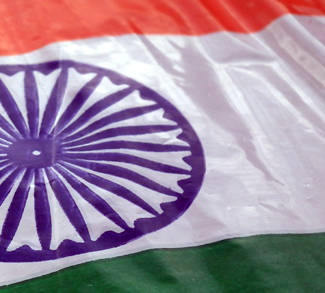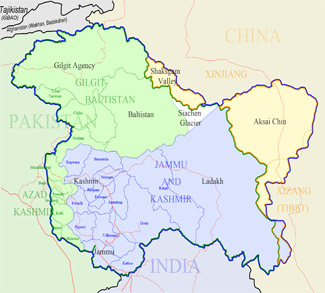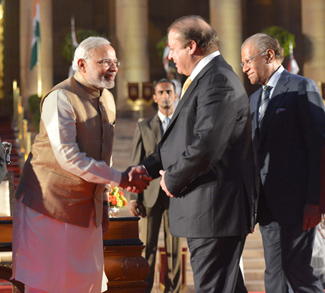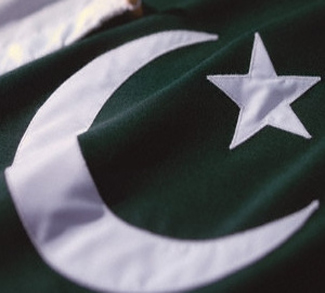Multiple bomb explosions in Saudi Arabia this week left four people dead and a handful of victims injured. The first attack took place in the morning near the US consulate in Jeddah in which the attacker detonated himself, injuring two security guards. The other two took place in the evening, one in Qatif outside a Shia mosque and the other that led to the death of four security guards outside the prophet’s mosque in Medina.
Of the three attacks which took place, experts understandably have attached more significance to the attack outside the prophet’s mosque, as it is one of the most revered places of the Islamic community, and also because of the fatalities involved. However, this focus on the prophet’s mosque attack has diverted much of the attention from the other two failed attacks, most notably, the one near the US consulate in Jeddah.
The Saudi Arabia interior minister had identified the suicide bomber in the US consulate attack as Abdullah Qalzar Khan from Pakistan. The Saudi government claims that Khan came to Saudi Arabia 12 years ago to work as a driver and has been living with his wife and a relative in Jeddah. The Saudi Interior Ministry released the photo of the attacker in its official twitter account @MOISAUDIARABIA on July 4th, 2016.

FayazKagzi, source : cbi.nic.in

source @MOISAUDIARABIA
However, Twitter is abuzz with the latest revelations that the said Abdullah Qalzar Khan is an Indian and not a Pakistani as originally claimed by the Saudis. Top trending hashtags such as #IndianWantedInSaudiBlasts claim that the said person is actually Fayaz Kagzi hailing from Beed in Maharashtra and not a Pakistani. And as has been claimed, the photographs of both the persons appear to be matching, triggering conjectures and confusions.
Interestingly, Fayaz Kagzi is one of the most wanted men in India and a red corner notice has been issued by the Interpol at the behest of the Central Bureau of Investigation in India. If the identity of this attacker is confirmed as that of Fayaz Kagzi, it will not only set the Indian security planners thinking but also those of the United States, Pakistan, and Saudi Arabia.
Why is Fayaz Kagzi Important?
Fayaz Kagzi is one of the key operatives of the terror group Lashkar-e-Taiba. Kagzi is wanted in the 2006 arms haul case in Aurangabad as well as the 2010 German bakery blasts in India. Kagzi is also reported to have met most of the operatives of the Indian Mujahideen module based out of Pune which carried out the Pune blast in 2012.
Kagzi escaped from India soon after the 2006 arms haul case to Pakistan. Kagzi who shuttles between Pakistan and Saudi Arabia is the key recruiter for the Lashkar-e-Taiba and more importantly, Kagzi is the “go between” man of Pakistan based Lashkar-e-Taiba and India based Indian Mujahideen. He controls the financial networks of the Indian Mujahideen in the Gulf States and runs a labyrinth of Hawala networks. Apart from this, Indian intelligence believes that Kagzi has been managing two operational locations of the Indian Mujahideen, one in Colombo and the other in Nepal. It is believed Kagzi played a pivotal role in the entire terrorist network of the Lashkar-e-Taiba in the Gulf States and hence is treated with utmost priority by the Indian authorities.
Open source reports indicate that Kagzi left Saudi Arabia in 2013, fearing extradition to India by the Saudi authorities as a couple of his close associates were deported in 2012. Kagzi’s close associate Abu Jundal, who was also a Lashkar-e-Taiba member based in Saudi Arabia, was deported in June 2012 and so was Fasih Mohammed, who was deported in October 2012 by the Saudi Arabian authorities.
Given the significance of Fayaz Kagzi in the Lashkar-e-Taiba, latest revelations that he is the suicide bomber near the US consulate in Jeddah, if confirmed, is bound to have far reaching impact not only in Saudi Arabia but also in U.S., Pakistan, and India as well.
If proven, this will be the first direct attempt by an Indian member of the Lashkar-e-Taiba to conduct a terrorist attack on US interests outside the Af-Pak region. Bringing US interests under the Lashkar-e-Taiba’s cross hairs, points to a change in strategy of the Lashkar-e-Taiba. Lashkar-e-Taiba has already been designated by the US government as a foreign terrorist organisation in 2002, yet it continues to operate and receive Pakistan patronage.
Lashkar-e-Taiba’s change in strategy can possibly be attributed to the fierce competition among terrorist groups such as the Lashkar-e-Taiba, Islamic State, and Al Qaeda. Alternatively, Lashkar-e-Taiba may have chosen US targets in Saudi Arabia in retribution to their recent joint sanctions against the Lashkar-e-Taiba, Al Qaeda, and the Taliban in March, 2016. As Adam J. Szubin, the acting Under Secretary for Terrorism and Financial Intelligence, US Treasury, states on the joint action:
“From terrorizing local populations to exploiting charities and religious institutions, al-Qaida, the Taliban, and Lashkar-e-Tayyiba have a long history of inflicting violence on Americans and our allies throughout South Asia and the Middle East,” “Today’s action marks yet another step in Treasury’s efforts to financially cripple terrorist financiers and demonstrates the United States’ and Saudi Arabia’s shared resolve to target those who support terrorism.”
However, it is imperative to mention that there is no definitive information about whether present loyalties of Kagzi still lies with Lashkar-e-Taiba. There is always a possibility that Fayaz Kaqzi could have joined the ranks of a terrorist group such as the Islamic State. Notwithstanding the above, surprisingly, Islamic State which would not miss a single opportunity to flaunt and exhibit its achievement such as this attempted attack has remained mute, and hence is less likely to have been behind this attack, as popularly believed.
Regardless of the various terrorist affiliations, the current situation is certain to present a heightened threat perception to US interests globally and more granularly in the Gulf. The gulf region especially Saudi Arabia has been a safe haven for terrorists mainly from the Lashkar-e-Taiba and the Indian Mujahideen who are operating against Indian interests in India and elsewhere. For instance, most of the extraditions and deportations to India have originated from United Arab Emirates followed by Saudi Arabia. Saudi Arabia had extradited terrorists like Abu Jundal, Fasih Mohammed, Usman Ghani Khan, Zeinul Abedin. However, in all the cases, Saudi Arabia had been procrastinating their extradition/deportation to India, seeking definitive evidentiary trail and information. For instance, Usman Ghani who was working in a Riyadh hospital was detained in 2012 by the Saudi authorities at the Indian government’s request but was cleared of all terror charges and released for unknown reasons. He was eventually deported in 2014. Similarly, Fasih Mohammed’s deportation was delayed by the Saudi authorities before his eventual deportation in 2012. In the case of Kagzi, it is believed that Saudi for long had sought more proof to extradite Kagzi to India. In some of the cases, Saudi Arabia had been dragging its feet, despite being clearly aware about the antecedents of some of terrorists who were sought by the Indian authorities.
Given Kagzi’s presence in Saudi Arabia and his reported role as the suicide bomber in the failed attack on the US consulate, one can expect a change in the Saudi Arabia’s stand on terrorists based in Saudi Arabia. This incident could actually become a wake-up call for the Saudi authorities on tacitly harbouring terrorists, sought by other countries. This anticipated change could actually translate into expeditious deportations and extraditions of other wanted terrorists, especially Indians who are still based in Saudi Arabia. And more importantly, operatives of the Lashkar-e-Taiba and other groups such as the Indian Mujahideen, who are backed by Pakistan, and who had long been using Saudi Arabia as a safe haven, could lose it soon.
It is a well-known fact that Lashkar-e-Taiba has been under Pakistan’s patronage. Pakistan has always been attempting to shield these terrorists based in Saudi Arabia. In this case as well, if confirmed, Kagzi had been using a fake Pakistani passport during his stay in Saudi Arabia, which in itself stands testimony to Pakistan’s complicity. And Saudi Arabia to some extent has remained oblivious to these facts. The current episode could actually lead to a strain in relations between Pakistan and Saudi Arabia, as Saudi Arabia will not be pleased with the terrorist activities in its own soil. Additionally, given the target of the attack as the US consulate, Pakistan will be under double pressure both from the Saudis as well as from the US government to act and curb the activities of Lashkar-e-Taiba in Pakistan as well as outside. To begin with, it would not come as a surprise to serious observers of South Asian politics, if Pakistan is impressed upon to act against the leader of the Lashkar-e-Taiba, Hafiz Mohammed Saeed who is the primary accused in the Mumbai attacks that took place in November 2008.
On the other hand, India stands to gain most out of this episode. First and the foremost, one of the most wanted and dreaded terrorist stands removed from the network. Second, India could possibly witness more thrust and support from both Saudi Arabia and the United States. This could set off a domino effect among other countries in the region such as Oman, Qatar, and Kuwait who could also clamp down on terrorists who operate against Indian interests from their respective countries. Terrorist who operate from the Gulf especially from Saudi Arabia, may not find Saudi Arabia and the Gulf region as an attractive safe sanctuary anymore in the future. Interestingly, India has now been presented with a window of opportunity to exert pressure on the stake holders such as Saudi Arabia and Pakistan
To conclude, if the identity of the suicide bomber is confirmed as that of Kagzi, it will signal a change in the focus of the Lashkar-e-Taiba, targeting US interests. By doing so in Saudi Arabia, Lashkar-e-Taiba has attempted to kill two birds with one stone. This episode could also witness the beginning of a transformation in the country to country relations between India, Pakistan, Saudi Arabia and the U.S. Pakistan could find itself in a quagmire, given its support for Lashkar-e-Taiba and other terrorists groups. Saudi Arabia, on the other hand, has long been blamed for spreading Wahabism across the world which had led to violent extremist movements. Now, it is time for Saudi Arabia to redeem itself from its past actions.
The opinions, beliefs, and viewpoints expressed by the authors are theirs alone and don’t reflect any official position of Geopoliticalmonitor.com.




